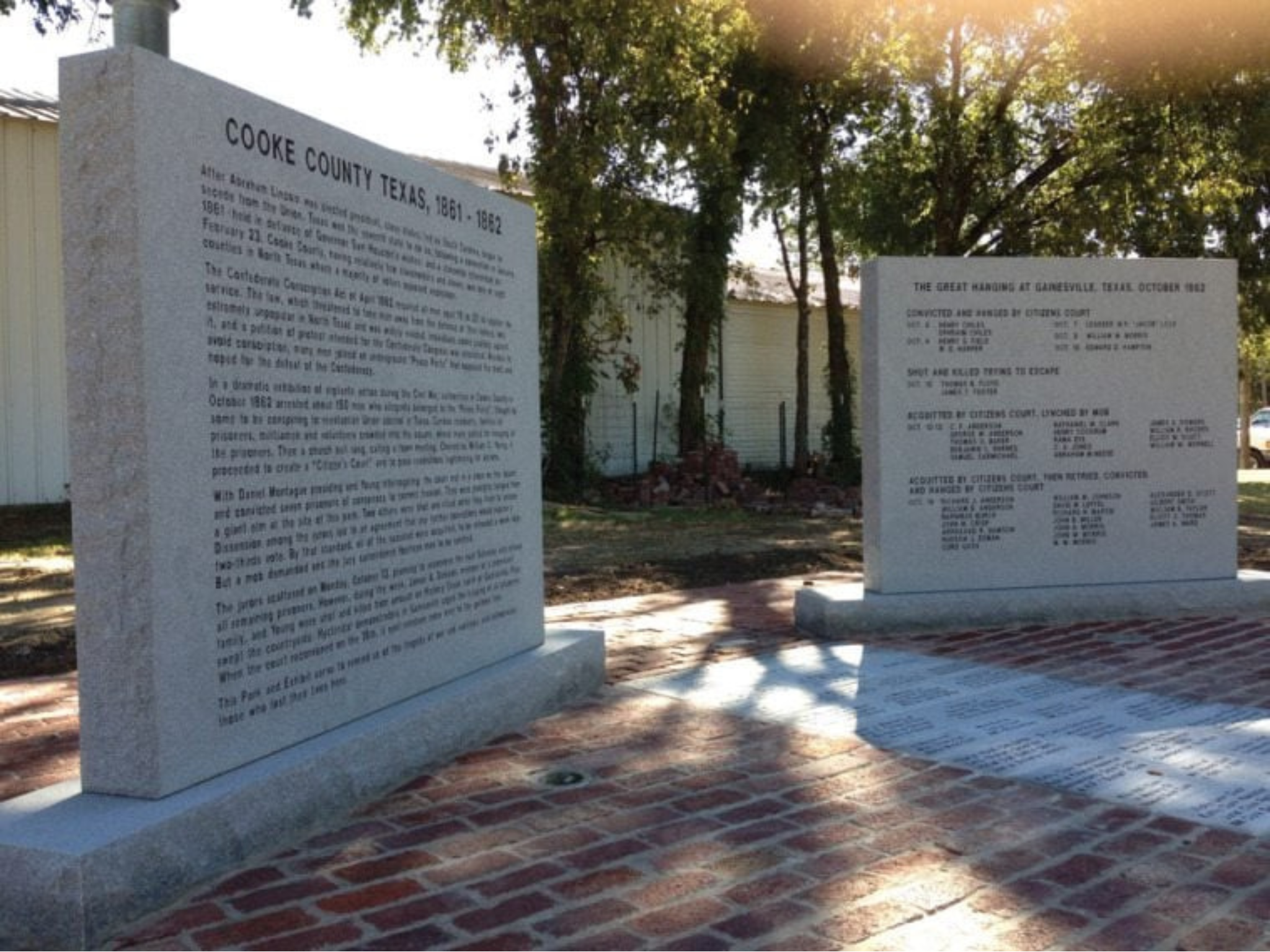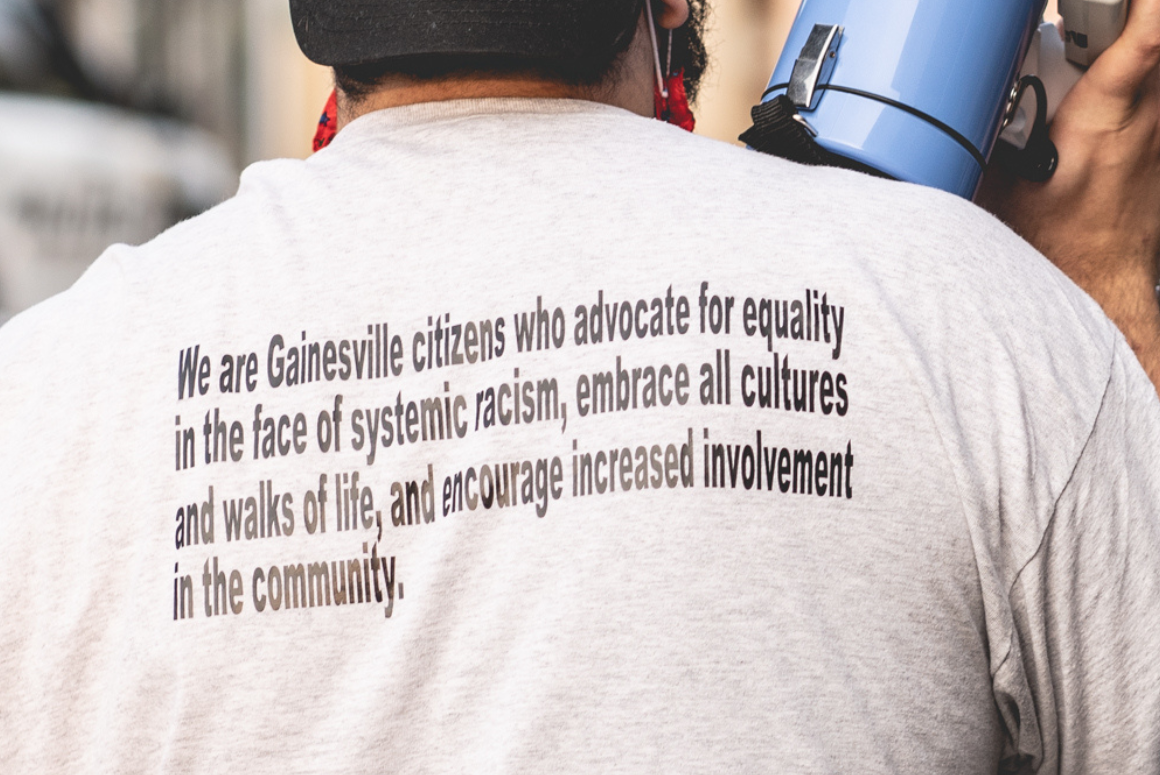11 minutes. That’s about how long our peaceful march lasted. We spent more than 127 times that long in jail.
On August 30, 2020, three community organizers planned a peaceful march for racial justice in their rural hometown of Gainesville, Texas, north of Dallas. The march was short, peaceful, and orderly. Days later, they were surprised to receive arrest warrants for “obstructing a highway or other passageway” – a Class B misdemeanor under state law.
Justin, Torrey, and Amara were later convicted and sentenced to jail.
Over the summer of 2024, the American Civil Liberties Union of Texas and the ACLU appealed to the U.S. Supreme Court to overturn the protesters’ convictions. While still awaiting a decision, they were incarcerated July 24, 2024.
The following is an account of Justin and Torrey’s experiences in their own words. Content warning: Details of incarceration, racial violence, isolation, mention of suicide.
In Justin's words
For as long as I can remember, a Confederate monument has stood near my hometown’s courthouse. It represents a violent history of Gainesville, acting as a marker that reminds our community of The Great Hanging of 1862 each time we pass by it.

In October 1862, Confederates arrested and captured over 100 men suspected of treason against the Confederacy for being Unionists. Community members then met to decide whether those captured were guilty. By the end of the month, 40 townspeople were hanged.
We felt it was time for change.
So, four years ago, I and other Gainesville residents peacefully marched down a public street to call for the removal of this very public reminder of the town’s history of racism and violence.
We never could have imagined what was to come.
When I received the warrant for my arrest, I immediately thought of what I could lose: my job, and — like a domino effect — my home, my support system, among other important things.
This was my hometown. The disbelief I felt was overwhelming. I couldn’t believe that the government officials were attempting to silence my First Amendment right to protest just because they didn’t seem to agree with my views.
As someone who has struggled with my mental health in the past, I had to follow the jail’s so-called suicide precaution system. While incarcerated, I was stripped naked, forced to wear a smock, and placed in solitary confinement. I spent over 40 hours in isolation, being fed through a small slot in the door.
As the hours dragged on, I realized I had no perception of how much time was actually passing. The moments blurred together. It was jarring and compounded the stress I already faced by being incarcerated.
The realization that I was in isolation because of something I had experienced years ago opened my eyes to the hardships people actively facing mental health challenges experience while in jail. It is imperative that our leaders support the mental health of people who are incarcerated.
My friends and I were thrown into a broken legal system and forced to face terrible conditions in jail — all because we exercised our constitutional right to peacefully protest.
Elected officials have no right to silence us because they don’t like what we have to say.
We won’t give up on change. It matters. I envision a future where rural Texans — and people in every zip code — are respected and not punished when we use our voices to call for change.
In Torrey's words
I remember that the lights were always on. And there was constant sound, too.
The only drinking water we had access to was the water in the back of the toilet.
I shared a housing pod with a handful of other people, including my sister, Amara, who was the third person convicted and sentenced to jail days after the protest ended. The only time I was able to leave my pod was for visitation, which only lasted 15 minutes. Our food — however poor in nutritional value — came to us through tiny openings in the door. If we weren’t awake to receive it, we simply didn’t eat.
I was constantly mentally and physically exhausted. I would look around at the others in my pod, knowing the people around me would face this brutal environment longer than I would.
We are dealing with a mass incarceration crisis in Texas. Texans like me are being incarcerated for exercising our constitutional rights. It’s dehumanizing and expensive.

Our community knew exactly who we were the day of our march. We’re a small one. It’s one of those communities where everybody knows everybody. I went to school and church in Gainesville. I have even babysat the children of some of our elected officials.
The day of our protest and leading up to it, we worked tirelessly to make sure everything was planned out and to the satisfaction of town leaders. We felt that organizing this peaceful march was necessary for the future of our community. Bringing attention to a Confederate statue in front of the courthouse lawn was a discomfort that our town needed.
Serving an entire jail sentence for peacefully protesting was a reminder for me that we have so much work to do.
We have spent a lot of time working to keep the people in power comfortable, but in the end we were punished anyway for exercising our civil rights. Progress is necessary. And it is needed -- now.
In our words, together
11 minutes.
That’s about how long our peaceful march lasted. We spent more than 127 times that long in jail.
It is our constitutional right to protest — to speak up for the things that matter to us. We should be able to make our voices heard without facing punishment.
Together, we will work toward a Texas where all of us, no matter where we are from, can exercise our fundamental rights. Sign up for updates from the ACLU of Texas and learn how to protect protest rights in our state.
Photos by Bryan Edward and Pamela Henderson

